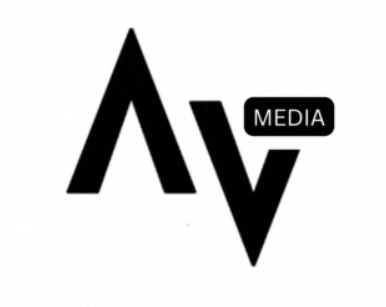For decades, the image of a peak athlete has been synonymous with a protein-heavy diet loaded with meat and dairy. However, a growing movement of plant-powered athletes is challenging this traditional notion. Fueled by vegetables, fruits, whole grains, legumes, and nuts, these athletes are proving that plant-based diets can not only sustain peak performance, but potentially even enhance it.
Beyond the Stereotype: Dispelling Myths About Plant-Based Athletes
One of the biggest hurdles for plant-based athletes is overcoming stereotypes. Here are some common myths debunked:
- Myth #1: Plant-Based Diets Lack Protein: A well-planned vegan diet can provide all the essential amino acids needed for protein synthesis. Athletes can find ample protein in sources like legumes, tofu, tempeh, nuts, and seeds.
- Myth #2: Vegans Don’t Get Enough Iron: While heme iron (found in meat) is more readily absorbed, plant-based sources like lentils, beans, leafy greens, and fortified foods offer non-heme iron. Vitamin C can enhance iron absorption from plant foods.
Statistics: A study published in the Journal of the International Society of Sports Nutrition found that vegetarian and vegan athletes had similar protein intakes compared to omnivorous athletes [3].
Fueling the Machine: Nutritional Advantages of Plant-Based Diets for Athletes
Plant-based diets offer a unique set of benefits for athletes:
- Rich in Antioxidants: Plant foods are brimming with antioxidants that combat cell damage caused by free radicals, potentially aiding recovery and reducing inflammation.
- High in Fiber: Fiber promotes gut health, which is crucial for nutrient absorption and overall well-being. Adequate fiber intake can also aid digestion and regulate blood sugar levels, providing sustained energy.
- Lower in Saturated Fat: Plant-based diets tend to be lower in saturated fat, which can benefit cardiovascular health and reduce the risk of chronic diseases.
Statistics: A review published in the journal Nutrients found that plant-based diets are associated with a lower risk of heart disease, type 2 diabetes, and certain types of cancer [4].
Powerhouse Plants: Essential Nutrients for Peak Performance
Here’s a breakdown of key nutrients for athletes and how plant-based diets can deliver:
- Protein: Legumes, tofu, tempeh, nuts, and seeds provide a variety of protein sources. Athletes can focus on consuming a variety of plant-based protein sources throughout the day to meet their needs.
- Carbohydrates: Whole grains, fruits, and starchy vegetables offer a sustained source of energy for athletes. These complex carbohydrates provide a slow, steady release of glucose, promoting optimal muscle glycogen levels.
- Iron: Leafy green vegetables, lentils, beans, and fortified foods like cereals and plant-based milks are excellent sources of iron. Pairing iron-rich plant foods with a source of vitamin C can enhance iron absorption.
- Calcium: Leafy greens, fortified plant-based milks, tofu, and certain nuts and seeds offer calcium for bone health. Athletes can also explore calcium-set tofu or calcium-fortified foods.
Success Stories: Plant-Based Champions on the Rise
A growing number of elite athletes are achieving remarkable feats on a plant-based diet:
- Lewis Hamilton: Formula One racing champion Lewis Hamilton credits his plant-based diet for improved focus, energy, and recovery.
- Venus Williams: Tennis legend Venus Williams credits her plant-based diet for increased stamina and overall health.
- Carl Lewis: Legendary track and field athlete Carl Lewis is a long-time vegan who attributes his longevity and success to his plant-based lifestyle.
Optimizing Performance: Tips for Plant-Based Athletes
To thrive on a plant-based diet, athletes need to be strategic:
- Planning and Variety: Plan meals and snacks to ensure adequate intake of all essential nutrients. Include a variety of plant-based protein sources throughout the day.
- Fueling for Workouts: Time meals and snacks strategically around workouts. Consider including carbohydrates for pre-workout energy and protein for post-workout recovery.
- Supplementation: Some athletes may benefit from consulting a registered dietitian to discuss potential supplementation needs, such as vitamin B12 and iron.
Finding the Right Fuel: A Personalized Approach
While plant-based diets hold immense potential for athletes, individual needs and preferences should be considered. Here are some additional points:
- Working with a Registered Dietitian: A sports dietitian can help athletes create a personalized plant-based meal plan that caters to their specific training requirements and ensures they meet all their nutritional needs.
- Listening to Your Body: Athletes should pay attention to their bodies and adjust their diet as needed. Experimenting with different plant-based foods and tracking energy levels can help identify optimal fueling strategies.
- Building a Support System: Surrounding yourself with a supportive network of coaches, trainers, and like-minded athletes can be invaluable on the plant-based journey.
The Future of Food for Athletes: A Plant-Based Revolution?
The rise of plant-based athletes coincides with a growing awareness of the environmental and ethical implications of animal agriculture. Here’s a glimpse into what the future might hold:
- Scientific Advancements: Continued research on plant-based nutrition for athletes could lead to the development of targeted supplements and sports nutrition products specifically designed for plant-based individuals.
- Menu Innovation: Sports teams, training facilities, and competition venues are likely to offer more plant-based options to cater to the growing demand from athletes.
- Shifting Perceptions: As more athletes achieve peak performance on plant-based diets, the traditional perception of an athlete’s diet may undergo a significant transformation.
Frequently Asked Questions (FAQ)
Here are some frequently asked questions regarding plant-based diets for athletes:
General Questions:
- Can athletes get enough protein on a plant-based diet?
Absolutely! A well-planned vegan diet can provide all the essential amino acids needed for protein synthesis. Athletes can find ample protein in legumes, tofu, tempeh, nuts, and seeds. Research suggests vegetarian and vegan athletes can achieve similar levels of strength and endurance compared to their omnivorous counterparts [1, 2].
- Do plant-based athletes need to worry about iron deficiency?
While heme iron (found in meat) is more readily absorbed, plant-based sources like lentils, beans, leafy greens, and fortified foods offer non-heme iron. Vitamin C can enhance iron absorption from plant foods.
- What are the benefits of a plant-based diet for athletes?
Plant-based diets are rich in antioxidants, high in fiber, and lower in saturated fat. These factors can promote gut health, sustained energy, and potentially reduce the risk of chronic diseases associated with a high-fat diet [4].
Planning and Implementation:
- How can athletes ensure they’re getting all the essential nutrients on a plant-based diet?
Planning and variety are key. Include a diversity of plant-based protein sources throughout the day and consider consulting a registered dietitian to create a personalized meal plan that meets your specific needs.
- What are some tips for fueling workouts with a plant-based diet?
Time meals and snacks strategically. Focus on carbohydrates for pre-workout energy and protein for post-workout recovery. Experiment with different plant-based foods to find what works best for you.
- Do plant-based athletes need to take supplements?
Some athletes may benefit from consulting a registered dietitian to discuss potential supplementation needs, such as vitamin B12 and iron.
The Future of Plant-Based Performance:
- Is a plant-based diet the future of sports nutrition?
The trend of plant-based athletes is gaining momentum. Continued research, menu innovation, and shifting perceptions around plant-based performance could lead to a significant transformation in the world of sports nutrition.
Conclusion
The debate around plant-based diets for athletes is no longer a question of “if” but “how.” Well-planned plant-based diets can provide all the essential nutrients athletes need to excel. The choice ultimately lies with the individual athlete. Whether driven by performance goals, ethical considerations, or environmental concerns, a plant-based approach to fueling athletic endeavors is a viable and potentially empowering option. As research continues and awareness grows, the future of sports nutrition might just be painted green.





















